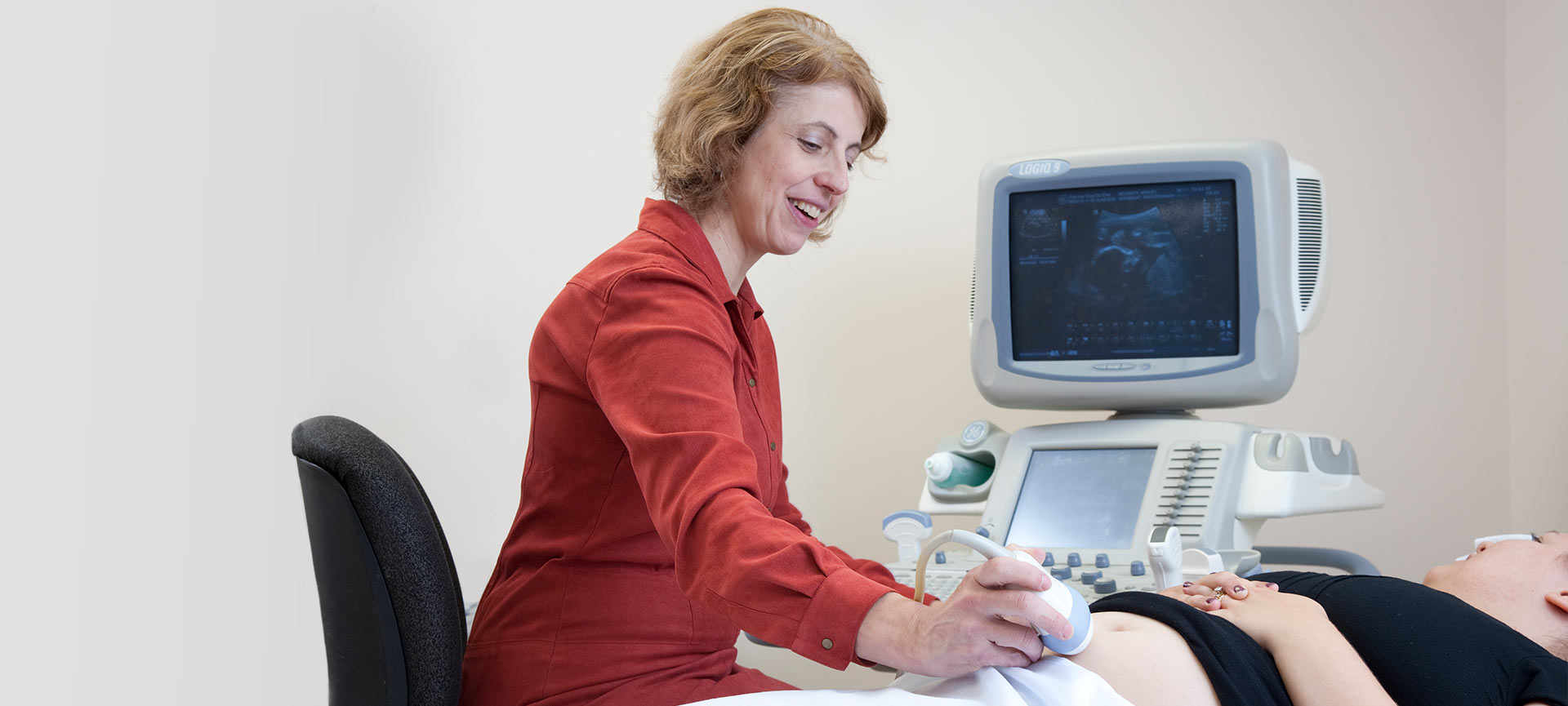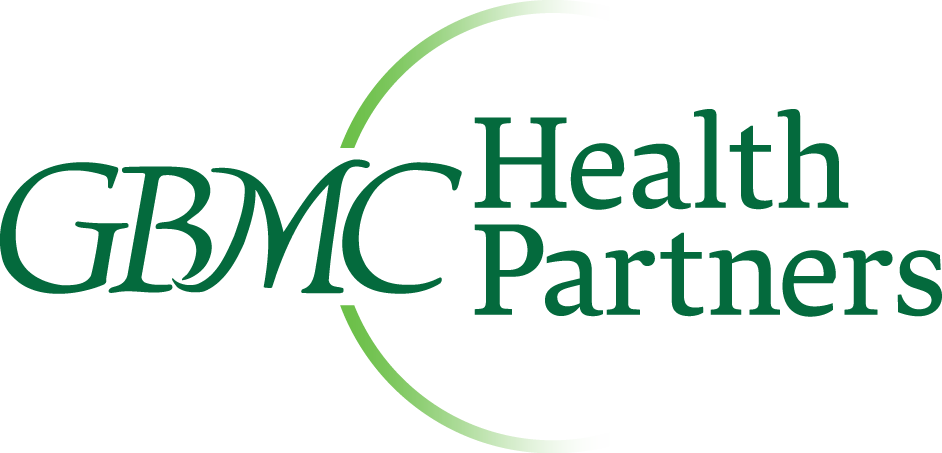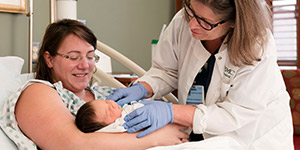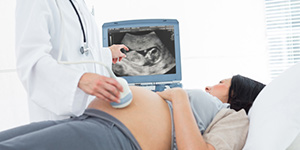Error message
Warning: unserialize(): Error at offset 0 of 62 bytes in Drupal\hg_features\Controller\APIController->export() (line 527 of modules/custom/hg_features/src/Controller/APIController.php).
Drupal\hg_features\Controller\APIController->export() (Line: 249)
Drupal\hg_features\Controller\ContentAPIController->export() (Line: 461)
Drupal\hg_features\Controller\NodeAPIController->export() (Line: 916)
Drupal\hg_features\Controller\NodeAPIController->list() (Line: 450)
Drupal\hg_mercury_card\Plugin\Block\ContentFeedBlock->__construct() (Line: 718)
Drupal\hg_mercury_card\Plugin\Block\ContentFeedBlock::create() (Line: 21)
Drupal\Core\Plugin\Factory\ContainerFactory->createInstance() (Line: 76)
Drupal\Component\Plugin\PluginManagerBase->createInstance() (Line: 62)
Drupal\Core\Plugin\DefaultSingleLazyPluginCollection->initializePlugin() (Line: 57)
Drupal\block\BlockPluginCollection->initializePlugin() (Line: 80)
Drupal\Component\Plugin\LazyPluginCollection->get() (Line: 45)
Drupal\block\BlockPluginCollection->get() (Line: 88)
Drupal\Core\Plugin\DefaultSingleLazyPluginCollection->setConfiguration() (Line: 104)
Drupal\Core\Plugin\DefaultSingleLazyPluginCollection->addInstanceId() (Line: 55)
Drupal\Core\Plugin\DefaultSingleLazyPluginCollection->__construct() (Line: 34)
Drupal\block\BlockPluginCollection->__construct() (Line: 158)
Drupal\block\Entity\Block->getPluginCollection() (Line: 147)
Drupal\block\Entity\Block->getPlugin() (Line: 118)
Drupal\block\BlockAccessControlHandler->checkAccess() (Line: 109)
Drupal\Core\Entity\EntityAccessControlHandler->access() (Line: 329)
Drupal\Core\Entity\EntityBase->access() (Line: 91)
Drupal\twig_tweak\View\RegionViewBuilder->build() (Line: 157)
Drupal\twig_tweak\TwigTweakExtension::drupalRegion() (Line: 535)
__TwigTemplate_85491af8a899340ec66d2fe705a0e9ed->doDisplay() (Line: 388)
Twig\Template->yield() (Line: 344)
Twig\Template->display() (Line: 359)
Twig\Template->render() (Line: 51)
Twig\TemplateWrapper->render() (Line: 33)
twig_render_template() (Line: 348)
Drupal\Core\Theme\ThemeManager->render() (Line: 491)
Drupal\Core\Render\Renderer->doRender() (Line: 248)
Drupal\Core\Render\Renderer->render() (Line: 238)
Drupal\Core\Render\MainContent\HtmlRenderer->Drupal\Core\Render\MainContent\{closure}() (Line: 638)
Drupal\Core\Render\Renderer->executeInRenderContext() (Line: 231)
Drupal\Core\Render\MainContent\HtmlRenderer->prepare() (Line: 128)
Drupal\Core\Render\MainContent\HtmlRenderer->renderResponse() (Line: 90)
Drupal\Core\EventSubscriber\MainContentViewSubscriber->onViewRenderArray()
call_user_func() (Line: 111)
Drupal\Component\EventDispatcher\ContainerAwareEventDispatcher->dispatch() (Line: 186)
Symfony\Component\HttpKernel\HttpKernel->handleRaw() (Line: 76)
Symfony\Component\HttpKernel\HttpKernel->handle() (Line: 53)
Drupal\Core\StackMiddleware\Session->handle() (Line: 48)
Drupal\Core\StackMiddleware\KernelPreHandle->handle() (Line: 28)
Drupal\Core\StackMiddleware\ContentLength->handle() (Line: 201)
Drupal\page_cache\StackMiddleware\PageCache->fetch() (Line: 138)
Drupal\page_cache\StackMiddleware\PageCache->lookup() (Line: 87)
Drupal\page_cache\StackMiddleware\PageCache->handle() (Line: 48)
Drupal\Core\StackMiddleware\ReverseProxyMiddleware->handle() (Line: 51)
Drupal\Core\StackMiddleware\NegotiationMiddleware->handle() (Line: 36)
Drupal\Core\StackMiddleware\AjaxPageState->handle() (Line: 51)
Drupal\Core\StackMiddleware\StackedHttpKernel->handle() (Line: 741)
Drupal\Core\DrupalKernel->handle() (Line: 19)
Warning: unserialize(): Error at offset 0 of 62 bytes in Drupal\hg_features\Controller\APIController->export() (line 527 of modules/custom/hg_features/src/Controller/APIController.php).
Drupal\hg_features\Controller\APIController->export() (Line: 249)
Drupal\hg_features\Controller\ContentAPIController->export() (Line: 461)
Drupal\hg_features\Controller\NodeAPIController->export() (Line: 916)
Drupal\hg_features\Controller\NodeAPIController->list() (Line: 450)
Drupal\hg_mercury_card\Plugin\Block\ContentFeedBlock->__construct() (Line: 718)
Drupal\hg_mercury_card\Plugin\Block\ContentFeedBlock::create() (Line: 21)
Drupal\Core\Plugin\Factory\ContainerFactory->createInstance() (Line: 76)
Drupal\Component\Plugin\PluginManagerBase->createInstance() (Line: 62)
Drupal\Core\Plugin\DefaultSingleLazyPluginCollection->initializePlugin() (Line: 57)
Drupal\block\BlockPluginCollection->initializePlugin() (Line: 80)
Drupal\Component\Plugin\LazyPluginCollection->get() (Line: 45)
Drupal\block\BlockPluginCollection->get() (Line: 88)
Drupal\Core\Plugin\DefaultSingleLazyPluginCollection->setConfiguration() (Line: 104)
Drupal\Core\Plugin\DefaultSingleLazyPluginCollection->addInstanceId() (Line: 55)
Drupal\Core\Plugin\DefaultSingleLazyPluginCollection->__construct() (Line: 34)
Drupal\block\BlockPluginCollection->__construct() (Line: 158)
Drupal\block\Entity\Block->getPluginCollection() (Line: 147)
Drupal\block\Entity\Block->getPlugin() (Line: 118)
Drupal\block\BlockAccessControlHandler->checkAccess() (Line: 109)
Drupal\Core\Entity\EntityAccessControlHandler->access() (Line: 329)
Drupal\Core\Entity\EntityBase->access() (Line: 91)
Drupal\twig_tweak\View\RegionViewBuilder->build() (Line: 157)
Drupal\twig_tweak\TwigTweakExtension::drupalRegion() (Line: 535)
__TwigTemplate_85491af8a899340ec66d2fe705a0e9ed->doDisplay() (Line: 388)
Twig\Template->yield() (Line: 344)
Twig\Template->display() (Line: 359)
Twig\Template->render() (Line: 51)
Twig\TemplateWrapper->render() (Line: 33)
twig_render_template() (Line: 348)
Drupal\Core\Theme\ThemeManager->render() (Line: 491)
Drupal\Core\Render\Renderer->doRender() (Line: 248)
Drupal\Core\Render\Renderer->render() (Line: 238)
Drupal\Core\Render\MainContent\HtmlRenderer->Drupal\Core\Render\MainContent\{closure}() (Line: 638)
Drupal\Core\Render\Renderer->executeInRenderContext() (Line: 231)
Drupal\Core\Render\MainContent\HtmlRenderer->prepare() (Line: 128)
Drupal\Core\Render\MainContent\HtmlRenderer->renderResponse() (Line: 90)
Drupal\Core\EventSubscriber\MainContentViewSubscriber->onViewRenderArray()
call_user_func() (Line: 111)
Drupal\Component\EventDispatcher\ContainerAwareEventDispatcher->dispatch() (Line: 186)
Symfony\Component\HttpKernel\HttpKernel->handleRaw() (Line: 76)
Symfony\Component\HttpKernel\HttpKernel->handle() (Line: 53)
Drupal\Core\StackMiddleware\Session->handle() (Line: 48)
Drupal\Core\StackMiddleware\KernelPreHandle->handle() (Line: 28)
Drupal\Core\StackMiddleware\ContentLength->handle() (Line: 201)
Drupal\page_cache\StackMiddleware\PageCache->fetch() (Line: 138)
Drupal\page_cache\StackMiddleware\PageCache->lookup() (Line: 87)
Drupal\page_cache\StackMiddleware\PageCache->handle() (Line: 48)
Drupal\Core\StackMiddleware\ReverseProxyMiddleware->handle() (Line: 51)
Drupal\Core\StackMiddleware\NegotiationMiddleware->handle() (Line: 36)
Drupal\Core\StackMiddleware\AjaxPageState->handle() (Line: 51)
Drupal\Core\StackMiddleware\StackedHttpKernel->handle() (Line: 741)
Drupal\Core\DrupalKernel->handle() (Line: 19)
Warning: unserialize(): Error at offset 0 of 62 bytes in Drupal\hg_features\Controller\APIController->export() (line 527 of modules/custom/hg_features/src/Controller/APIController.php).
Drupal\hg_features\Controller\APIController->export() (Line: 249)
Drupal\hg_features\Controller\ContentAPIController->export() (Line: 461)
Drupal\hg_features\Controller\NodeAPIController->export() (Line: 916)
Drupal\hg_features\Controller\NodeAPIController->list() (Line: 450)
Drupal\hg_mercury_card\Plugin\Block\ContentFeedBlock->__construct() (Line: 718)
Drupal\hg_mercury_card\Plugin\Block\ContentFeedBlock::create() (Line: 21)
Drupal\Core\Plugin\Factory\ContainerFactory->createInstance() (Line: 76)
Drupal\Component\Plugin\PluginManagerBase->createInstance() (Line: 62)
Drupal\Core\Plugin\DefaultSingleLazyPluginCollection->initializePlugin() (Line: 57)
Drupal\block\BlockPluginCollection->initializePlugin() (Line: 80)
Drupal\Component\Plugin\LazyPluginCollection->get() (Line: 45)
Drupal\block\BlockPluginCollection->get() (Line: 88)
Drupal\Core\Plugin\DefaultSingleLazyPluginCollection->setConfiguration() (Line: 104)
Drupal\Core\Plugin\DefaultSingleLazyPluginCollection->addInstanceId() (Line: 55)
Drupal\Core\Plugin\DefaultSingleLazyPluginCollection->__construct() (Line: 34)
Drupal\block\BlockPluginCollection->__construct() (Line: 158)
Drupal\block\Entity\Block->getPluginCollection() (Line: 147)
Drupal\block\Entity\Block->getPlugin() (Line: 118)
Drupal\block\BlockAccessControlHandler->checkAccess() (Line: 109)
Drupal\Core\Entity\EntityAccessControlHandler->access() (Line: 329)
Drupal\Core\Entity\EntityBase->access() (Line: 91)
Drupal\twig_tweak\View\RegionViewBuilder->build() (Line: 157)
Drupal\twig_tweak\TwigTweakExtension::drupalRegion() (Line: 535)
__TwigTemplate_85491af8a899340ec66d2fe705a0e9ed->doDisplay() (Line: 388)
Twig\Template->yield() (Line: 344)
Twig\Template->display() (Line: 359)
Twig\Template->render() (Line: 51)
Twig\TemplateWrapper->render() (Line: 33)
twig_render_template() (Line: 348)
Drupal\Core\Theme\ThemeManager->render() (Line: 491)
Drupal\Core\Render\Renderer->doRender() (Line: 248)
Drupal\Core\Render\Renderer->render() (Line: 238)
Drupal\Core\Render\MainContent\HtmlRenderer->Drupal\Core\Render\MainContent\{closure}() (Line: 638)
Drupal\Core\Render\Renderer->executeInRenderContext() (Line: 231)
Drupal\Core\Render\MainContent\HtmlRenderer->prepare() (Line: 128)
Drupal\Core\Render\MainContent\HtmlRenderer->renderResponse() (Line: 90)
Drupal\Core\EventSubscriber\MainContentViewSubscriber->onViewRenderArray()
call_user_func() (Line: 111)
Drupal\Component\EventDispatcher\ContainerAwareEventDispatcher->dispatch() (Line: 186)
Symfony\Component\HttpKernel\HttpKernel->handleRaw() (Line: 76)
Symfony\Component\HttpKernel\HttpKernel->handle() (Line: 53)
Drupal\Core\StackMiddleware\Session->handle() (Line: 48)
Drupal\Core\StackMiddleware\KernelPreHandle->handle() (Line: 28)
Drupal\Core\StackMiddleware\ContentLength->handle() (Line: 201)
Drupal\page_cache\StackMiddleware\PageCache->fetch() (Line: 138)
Drupal\page_cache\StackMiddleware\PageCache->lookup() (Line: 87)
Drupal\page_cache\StackMiddleware\PageCache->handle() (Line: 48)
Drupal\Core\StackMiddleware\ReverseProxyMiddleware->handle() (Line: 51)
Drupal\Core\StackMiddleware\NegotiationMiddleware->handle() (Line: 36)
Drupal\Core\StackMiddleware\AjaxPageState->handle() (Line: 51)
Drupal\Core\StackMiddleware\StackedHttpKernel->handle() (Line: 741)
Drupal\Core\DrupalKernel->handle() (Line: 19)
Warning: unserialize(): Error at offset 0 of 62 bytes in Drupal\hg_features\Controller\APIController->export() (line 527 of modules/custom/hg_features/src/Controller/APIController.php).
Drupal\hg_features\Controller\APIController->export() (Line: 249)
Drupal\hg_features\Controller\ContentAPIController->export() (Line: 461)
Drupal\hg_features\Controller\NodeAPIController->export() (Line: 916)
Drupal\hg_features\Controller\NodeAPIController->list() (Line: 450)
Drupal\hg_mercury_card\Plugin\Block\ContentFeedBlock->__construct() (Line: 718)
Drupal\hg_mercury_card\Plugin\Block\ContentFeedBlock::create() (Line: 21)
Drupal\Core\Plugin\Factory\ContainerFactory->createInstance() (Line: 76)
Drupal\Component\Plugin\PluginManagerBase->createInstance() (Line: 62)
Drupal\Core\Plugin\DefaultSingleLazyPluginCollection->initializePlugin() (Line: 57)
Drupal\block\BlockPluginCollection->initializePlugin() (Line: 80)
Drupal\Component\Plugin\LazyPluginCollection->get() (Line: 45)
Drupal\block\BlockPluginCollection->get() (Line: 88)
Drupal\Core\Plugin\DefaultSingleLazyPluginCollection->setConfiguration() (Line: 104)
Drupal\Core\Plugin\DefaultSingleLazyPluginCollection->addInstanceId() (Line: 55)
Drupal\Core\Plugin\DefaultSingleLazyPluginCollection->__construct() (Line: 34)
Drupal\block\BlockPluginCollection->__construct() (Line: 158)
Drupal\block\Entity\Block->getPluginCollection() (Line: 147)
Drupal\block\Entity\Block->getPlugin() (Line: 118)
Drupal\block\BlockAccessControlHandler->checkAccess() (Line: 109)
Drupal\Core\Entity\EntityAccessControlHandler->access() (Line: 329)
Drupal\Core\Entity\EntityBase->access() (Line: 91)
Drupal\twig_tweak\View\RegionViewBuilder->build() (Line: 157)
Drupal\twig_tweak\TwigTweakExtension::drupalRegion() (Line: 535)
__TwigTemplate_85491af8a899340ec66d2fe705a0e9ed->doDisplay() (Line: 388)
Twig\Template->yield() (Line: 344)
Twig\Template->display() (Line: 359)
Twig\Template->render() (Line: 51)
Twig\TemplateWrapper->render() (Line: 33)
twig_render_template() (Line: 348)
Drupal\Core\Theme\ThemeManager->render() (Line: 491)
Drupal\Core\Render\Renderer->doRender() (Line: 248)
Drupal\Core\Render\Renderer->render() (Line: 238)
Drupal\Core\Render\MainContent\HtmlRenderer->Drupal\Core\Render\MainContent\{closure}() (Line: 638)
Drupal\Core\Render\Renderer->executeInRenderContext() (Line: 231)
Drupal\Core\Render\MainContent\HtmlRenderer->prepare() (Line: 128)
Drupal\Core\Render\MainContent\HtmlRenderer->renderResponse() (Line: 90)
Drupal\Core\EventSubscriber\MainContentViewSubscriber->onViewRenderArray()
call_user_func() (Line: 111)
Drupal\Component\EventDispatcher\ContainerAwareEventDispatcher->dispatch() (Line: 186)
Symfony\Component\HttpKernel\HttpKernel->handleRaw() (Line: 76)
Symfony\Component\HttpKernel\HttpKernel->handle() (Line: 53)
Drupal\Core\StackMiddleware\Session->handle() (Line: 48)
Drupal\Core\StackMiddleware\KernelPreHandle->handle() (Line: 28)
Drupal\Core\StackMiddleware\ContentLength->handle() (Line: 201)
Drupal\page_cache\StackMiddleware\PageCache->fetch() (Line: 138)
Drupal\page_cache\StackMiddleware\PageCache->lookup() (Line: 87)
Drupal\page_cache\StackMiddleware\PageCache->handle() (Line: 48)
Drupal\Core\StackMiddleware\ReverseProxyMiddleware->handle() (Line: 51)
Drupal\Core\StackMiddleware\NegotiationMiddleware->handle() (Line: 36)
Drupal\Core\StackMiddleware\AjaxPageState->handle() (Line: 51)
Drupal\Core\StackMiddleware\StackedHttpKernel->handle() (Line: 741)
Drupal\Core\DrupalKernel->handle() (Line: 19)
Warning: unserialize(): Error at offset 0 of 62 bytes in Drupal\hg_features\Controller\APIController->export() (line 527 of modules/custom/hg_features/src/Controller/APIController.php).
Drupal\hg_features\Controller\APIController->export() (Line: 249)
Drupal\hg_features\Controller\ContentAPIController->export() (Line: 461)
Drupal\hg_features\Controller\NodeAPIController->export() (Line: 916)
Drupal\hg_features\Controller\NodeAPIController->list() (Line: 450)
Drupal\hg_mercury_card\Plugin\Block\ContentFeedBlock->__construct() (Line: 718)
Drupal\hg_mercury_card\Plugin\Block\ContentFeedBlock::create() (Line: 21)
Drupal\Core\Plugin\Factory\ContainerFactory->createInstance() (Line: 76)
Drupal\Component\Plugin\PluginManagerBase->createInstance() (Line: 62)
Drupal\Core\Plugin\DefaultSingleLazyPluginCollection->initializePlugin() (Line: 57)
Drupal\block\BlockPluginCollection->initializePlugin() (Line: 80)
Drupal\Component\Plugin\LazyPluginCollection->get() (Line: 45)
Drupal\block\BlockPluginCollection->get() (Line: 88)
Drupal\Core\Plugin\DefaultSingleLazyPluginCollection->setConfiguration() (Line: 104)
Drupal\Core\Plugin\DefaultSingleLazyPluginCollection->addInstanceId() (Line: 55)
Drupal\Core\Plugin\DefaultSingleLazyPluginCollection->__construct() (Line: 34)
Drupal\block\BlockPluginCollection->__construct() (Line: 158)
Drupal\block\Entity\Block->getPluginCollection() (Line: 147)
Drupal\block\Entity\Block->getPlugin() (Line: 96)
Drupal\block\BlockViewBuilder::buildPreRenderableBlock() (Line: 158)
Drupal\block\BlockViewBuilder::lazyBuilder()
call_user_func_array() (Line: 113)
Drupal\Core\Render\Renderer->doTrustedCallback() (Line: 875)
Drupal\Core\Render\Renderer->doCallback() (Line: 411)
Drupal\Core\Render\Renderer->doRender() (Line: 504)
Drupal\Core\Render\Renderer->doRender() (Line: 248)
Drupal\Core\Render\Renderer->render() (Line: 484)
Drupal\Core\Template\TwigExtension->escapeFilter() (Line: 535)
__TwigTemplate_85491af8a899340ec66d2fe705a0e9ed->doDisplay() (Line: 388)
Twig\Template->yield() (Line: 344)
Twig\Template->display() (Line: 359)
Twig\Template->render() (Line: 51)
Twig\TemplateWrapper->render() (Line: 33)
twig_render_template() (Line: 348)
Drupal\Core\Theme\ThemeManager->render() (Line: 491)
Drupal\Core\Render\Renderer->doRender() (Line: 248)
Drupal\Core\Render\Renderer->render() (Line: 238)
Drupal\Core\Render\MainContent\HtmlRenderer->Drupal\Core\Render\MainContent\{closure}() (Line: 638)
Drupal\Core\Render\Renderer->executeInRenderContext() (Line: 231)
Drupal\Core\Render\MainContent\HtmlRenderer->prepare() (Line: 128)
Drupal\Core\Render\MainContent\HtmlRenderer->renderResponse() (Line: 90)
Drupal\Core\EventSubscriber\MainContentViewSubscriber->onViewRenderArray()
call_user_func() (Line: 111)
Drupal\Component\EventDispatcher\ContainerAwareEventDispatcher->dispatch() (Line: 186)
Symfony\Component\HttpKernel\HttpKernel->handleRaw() (Line: 76)
Symfony\Component\HttpKernel\HttpKernel->handle() (Line: 53)
Drupal\Core\StackMiddleware\Session->handle() (Line: 48)
Drupal\Core\StackMiddleware\KernelPreHandle->handle() (Line: 28)
Drupal\Core\StackMiddleware\ContentLength->handle() (Line: 201)
Drupal\page_cache\StackMiddleware\PageCache->fetch() (Line: 138)
Drupal\page_cache\StackMiddleware\PageCache->lookup() (Line: 87)
Drupal\page_cache\StackMiddleware\PageCache->handle() (Line: 48)
Drupal\Core\StackMiddleware\ReverseProxyMiddleware->handle() (Line: 51)
Drupal\Core\StackMiddleware\NegotiationMiddleware->handle() (Line: 36)
Drupal\Core\StackMiddleware\AjaxPageState->handle() (Line: 51)
Drupal\Core\StackMiddleware\StackedHttpKernel->handle() (Line: 741)
Drupal\Core\DrupalKernel->handle() (Line: 19)
Warning: unserialize(): Error at offset 0 of 62 bytes in Drupal\hg_features\Controller\APIController->export() (line 527 of modules/custom/hg_features/src/Controller/APIController.php).
Drupal\hg_features\Controller\APIController->export() (Line: 249)
Drupal\hg_features\Controller\ContentAPIController->export() (Line: 461)
Drupal\hg_features\Controller\NodeAPIController->export() (Line: 916)
Drupal\hg_features\Controller\NodeAPIController->list() (Line: 450)
Drupal\hg_mercury_card\Plugin\Block\ContentFeedBlock->__construct() (Line: 718)
Drupal\hg_mercury_card\Plugin\Block\ContentFeedBlock::create() (Line: 21)
Drupal\Core\Plugin\Factory\ContainerFactory->createInstance() (Line: 76)
Drupal\Component\Plugin\PluginManagerBase->createInstance() (Line: 62)
Drupal\Core\Plugin\DefaultSingleLazyPluginCollection->initializePlugin() (Line: 57)
Drupal\block\BlockPluginCollection->initializePlugin() (Line: 80)
Drupal\Component\Plugin\LazyPluginCollection->get() (Line: 45)
Drupal\block\BlockPluginCollection->get() (Line: 88)
Drupal\Core\Plugin\DefaultSingleLazyPluginCollection->setConfiguration() (Line: 104)
Drupal\Core\Plugin\DefaultSingleLazyPluginCollection->addInstanceId() (Line: 55)
Drupal\Core\Plugin\DefaultSingleLazyPluginCollection->__construct() (Line: 34)
Drupal\block\BlockPluginCollection->__construct() (Line: 158)
Drupal\block\Entity\Block->getPluginCollection() (Line: 147)
Drupal\block\Entity\Block->getPlugin() (Line: 96)
Drupal\block\BlockViewBuilder::buildPreRenderableBlock() (Line: 158)
Drupal\block\BlockViewBuilder::lazyBuilder()
call_user_func_array() (Line: 113)
Drupal\Core\Render\Renderer->doTrustedCallback() (Line: 875)
Drupal\Core\Render\Renderer->doCallback() (Line: 411)
Drupal\Core\Render\Renderer->doRender() (Line: 504)
Drupal\Core\Render\Renderer->doRender() (Line: 248)
Drupal\Core\Render\Renderer->render() (Line: 484)
Drupal\Core\Template\TwigExtension->escapeFilter() (Line: 535)
__TwigTemplate_85491af8a899340ec66d2fe705a0e9ed->doDisplay() (Line: 388)
Twig\Template->yield() (Line: 344)
Twig\Template->display() (Line: 359)
Twig\Template->render() (Line: 51)
Twig\TemplateWrapper->render() (Line: 33)
twig_render_template() (Line: 348)
Drupal\Core\Theme\ThemeManager->render() (Line: 491)
Drupal\Core\Render\Renderer->doRender() (Line: 248)
Drupal\Core\Render\Renderer->render() (Line: 238)
Drupal\Core\Render\MainContent\HtmlRenderer->Drupal\Core\Render\MainContent\{closure}() (Line: 638)
Drupal\Core\Render\Renderer->executeInRenderContext() (Line: 231)
Drupal\Core\Render\MainContent\HtmlRenderer->prepare() (Line: 128)
Drupal\Core\Render\MainContent\HtmlRenderer->renderResponse() (Line: 90)
Drupal\Core\EventSubscriber\MainContentViewSubscriber->onViewRenderArray()
call_user_func() (Line: 111)
Drupal\Component\EventDispatcher\ContainerAwareEventDispatcher->dispatch() (Line: 186)
Symfony\Component\HttpKernel\HttpKernel->handleRaw() (Line: 76)
Symfony\Component\HttpKernel\HttpKernel->handle() (Line: 53)
Drupal\Core\StackMiddleware\Session->handle() (Line: 48)
Drupal\Core\StackMiddleware\KernelPreHandle->handle() (Line: 28)
Drupal\Core\StackMiddleware\ContentLength->handle() (Line: 201)
Drupal\page_cache\StackMiddleware\PageCache->fetch() (Line: 138)
Drupal\page_cache\StackMiddleware\PageCache->lookup() (Line: 87)
Drupal\page_cache\StackMiddleware\PageCache->handle() (Line: 48)
Drupal\Core\StackMiddleware\ReverseProxyMiddleware->handle() (Line: 51)
Drupal\Core\StackMiddleware\NegotiationMiddleware->handle() (Line: 36)
Drupal\Core\StackMiddleware\AjaxPageState->handle() (Line: 51)
Drupal\Core\StackMiddleware\StackedHttpKernel->handle() (Line: 741)
Drupal\Core\DrupalKernel->handle() (Line: 19)
Warning: unserialize(): Error at offset 0 of 62 bytes in Drupal\hg_features\Controller\APIController->export() (line 527 of modules/custom/hg_features/src/Controller/APIController.php).
Drupal\hg_features\Controller\APIController->export() (Line: 249)
Drupal\hg_features\Controller\ContentAPIController->export() (Line: 461)
Drupal\hg_features\Controller\NodeAPIController->export() (Line: 916)
Drupal\hg_features\Controller\NodeAPIController->list() (Line: 450)
Drupal\hg_mercury_card\Plugin\Block\ContentFeedBlock->__construct() (Line: 718)
Drupal\hg_mercury_card\Plugin\Block\ContentFeedBlock::create() (Line: 21)
Drupal\Core\Plugin\Factory\ContainerFactory->createInstance() (Line: 76)
Drupal\Component\Plugin\PluginManagerBase->createInstance() (Line: 62)
Drupal\Core\Plugin\DefaultSingleLazyPluginCollection->initializePlugin() (Line: 57)
Drupal\block\BlockPluginCollection->initializePlugin() (Line: 80)
Drupal\Component\Plugin\LazyPluginCollection->get() (Line: 45)
Drupal\block\BlockPluginCollection->get() (Line: 88)
Drupal\Core\Plugin\DefaultSingleLazyPluginCollection->setConfiguration() (Line: 104)
Drupal\Core\Plugin\DefaultSingleLazyPluginCollection->addInstanceId() (Line: 55)
Drupal\Core\Plugin\DefaultSingleLazyPluginCollection->__construct() (Line: 34)
Drupal\block\BlockPluginCollection->__construct() (Line: 158)
Drupal\block\Entity\Block->getPluginCollection() (Line: 147)
Drupal\block\Entity\Block->getPlugin() (Line: 96)
Drupal\block\BlockViewBuilder::buildPreRenderableBlock() (Line: 158)
Drupal\block\BlockViewBuilder::lazyBuilder()
call_user_func_array() (Line: 113)
Drupal\Core\Render\Renderer->doTrustedCallback() (Line: 875)
Drupal\Core\Render\Renderer->doCallback() (Line: 411)
Drupal\Core\Render\Renderer->doRender() (Line: 504)
Drupal\Core\Render\Renderer->doRender() (Line: 248)
Drupal\Core\Render\Renderer->render() (Line: 484)
Drupal\Core\Template\TwigExtension->escapeFilter() (Line: 535)
__TwigTemplate_85491af8a899340ec66d2fe705a0e9ed->doDisplay() (Line: 388)
Twig\Template->yield() (Line: 344)
Twig\Template->display() (Line: 359)
Twig\Template->render() (Line: 51)
Twig\TemplateWrapper->render() (Line: 33)
twig_render_template() (Line: 348)
Drupal\Core\Theme\ThemeManager->render() (Line: 491)
Drupal\Core\Render\Renderer->doRender() (Line: 248)
Drupal\Core\Render\Renderer->render() (Line: 238)
Drupal\Core\Render\MainContent\HtmlRenderer->Drupal\Core\Render\MainContent\{closure}() (Line: 638)
Drupal\Core\Render\Renderer->executeInRenderContext() (Line: 231)
Drupal\Core\Render\MainContent\HtmlRenderer->prepare() (Line: 128)
Drupal\Core\Render\MainContent\HtmlRenderer->renderResponse() (Line: 90)
Drupal\Core\EventSubscriber\MainContentViewSubscriber->onViewRenderArray()
call_user_func() (Line: 111)
Drupal\Component\EventDispatcher\ContainerAwareEventDispatcher->dispatch() (Line: 186)
Symfony\Component\HttpKernel\HttpKernel->handleRaw() (Line: 76)
Symfony\Component\HttpKernel\HttpKernel->handle() (Line: 53)
Drupal\Core\StackMiddleware\Session->handle() (Line: 48)
Drupal\Core\StackMiddleware\KernelPreHandle->handle() (Line: 28)
Drupal\Core\StackMiddleware\ContentLength->handle() (Line: 201)
Drupal\page_cache\StackMiddleware\PageCache->fetch() (Line: 138)
Drupal\page_cache\StackMiddleware\PageCache->lookup() (Line: 87)
Drupal\page_cache\StackMiddleware\PageCache->handle() (Line: 48)
Drupal\Core\StackMiddleware\ReverseProxyMiddleware->handle() (Line: 51)
Drupal\Core\StackMiddleware\NegotiationMiddleware->handle() (Line: 36)
Drupal\Core\StackMiddleware\AjaxPageState->handle() (Line: 51)
Drupal\Core\StackMiddleware\StackedHttpKernel->handle() (Line: 741)
Drupal\Core\DrupalKernel->handle() (Line: 19)
Warning: unserialize(): Error at offset 0 of 62 bytes in Drupal\hg_features\Controller\APIController->export() (line 527 of modules/custom/hg_features/src/Controller/APIController.php).
Drupal\hg_features\Controller\APIController->export() (Line: 249)
Drupal\hg_features\Controller\ContentAPIController->export() (Line: 461)
Drupal\hg_features\Controller\NodeAPIController->export() (Line: 916)
Drupal\hg_features\Controller\NodeAPIController->list() (Line: 450)
Drupal\hg_mercury_card\Plugin\Block\ContentFeedBlock->__construct() (Line: 718)
Drupal\hg_mercury_card\Plugin\Block\ContentFeedBlock::create() (Line: 21)
Drupal\Core\Plugin\Factory\ContainerFactory->createInstance() (Line: 76)
Drupal\Component\Plugin\PluginManagerBase->createInstance() (Line: 62)
Drupal\Core\Plugin\DefaultSingleLazyPluginCollection->initializePlugin() (Line: 57)
Drupal\block\BlockPluginCollection->initializePlugin() (Line: 80)
Drupal\Component\Plugin\LazyPluginCollection->get() (Line: 45)
Drupal\block\BlockPluginCollection->get() (Line: 88)
Drupal\Core\Plugin\DefaultSingleLazyPluginCollection->setConfiguration() (Line: 104)
Drupal\Core\Plugin\DefaultSingleLazyPluginCollection->addInstanceId() (Line: 55)
Drupal\Core\Plugin\DefaultSingleLazyPluginCollection->__construct() (Line: 34)
Drupal\block\BlockPluginCollection->__construct() (Line: 158)
Drupal\block\Entity\Block->getPluginCollection() (Line: 147)
Drupal\block\Entity\Block->getPlugin() (Line: 96)
Drupal\block\BlockViewBuilder::buildPreRenderableBlock() (Line: 158)
Drupal\block\BlockViewBuilder::lazyBuilder()
call_user_func_array() (Line: 113)
Drupal\Core\Render\Renderer->doTrustedCallback() (Line: 875)
Drupal\Core\Render\Renderer->doCallback() (Line: 411)
Drupal\Core\Render\Renderer->doRender() (Line: 504)
Drupal\Core\Render\Renderer->doRender() (Line: 248)
Drupal\Core\Render\Renderer->render() (Line: 484)
Drupal\Core\Template\TwigExtension->escapeFilter() (Line: 535)
__TwigTemplate_85491af8a899340ec66d2fe705a0e9ed->doDisplay() (Line: 388)
Twig\Template->yield() (Line: 344)
Twig\Template->display() (Line: 359)
Twig\Template->render() (Line: 51)
Twig\TemplateWrapper->render() (Line: 33)
twig_render_template() (Line: 348)
Drupal\Core\Theme\ThemeManager->render() (Line: 491)
Drupal\Core\Render\Renderer->doRender() (Line: 248)
Drupal\Core\Render\Renderer->render() (Line: 238)
Drupal\Core\Render\MainContent\HtmlRenderer->Drupal\Core\Render\MainContent\{closure}() (Line: 638)
Drupal\Core\Render\Renderer->executeInRenderContext() (Line: 231)
Drupal\Core\Render\MainContent\HtmlRenderer->prepare() (Line: 128)
Drupal\Core\Render\MainContent\HtmlRenderer->renderResponse() (Line: 90)
Drupal\Core\EventSubscriber\MainContentViewSubscriber->onViewRenderArray()
call_user_func() (Line: 111)
Drupal\Component\EventDispatcher\ContainerAwareEventDispatcher->dispatch() (Line: 186)
Symfony\Component\HttpKernel\HttpKernel->handleRaw() (Line: 76)
Symfony\Component\HttpKernel\HttpKernel->handle() (Line: 53)
Drupal\Core\StackMiddleware\Session->handle() (Line: 48)
Drupal\Core\StackMiddleware\KernelPreHandle->handle() (Line: 28)
Drupal\Core\StackMiddleware\ContentLength->handle() (Line: 201)
Drupal\page_cache\StackMiddleware\PageCache->fetch() (Line: 138)
Drupal\page_cache\StackMiddleware\PageCache->lookup() (Line: 87)
Drupal\page_cache\StackMiddleware\PageCache->handle() (Line: 48)
Drupal\Core\StackMiddleware\ReverseProxyMiddleware->handle() (Line: 51)
Drupal\Core\StackMiddleware\NegotiationMiddleware->handle() (Line: 36)
Drupal\Core\StackMiddleware\AjaxPageState->handle() (Line: 51)
Drupal\Core\StackMiddleware\StackedHttpKernel->handle() (Line: 741)
Drupal\Core\DrupalKernel->handle() (Line: 19)
Warning: unserialize(): Error at offset 0 of 62 bytes in Drupal\hg_features\Controller\APIController->export() (line 527 of modules/custom/hg_features/src/Controller/APIController.php).
Drupal\hg_features\Controller\APIController->export() (Line: 249) Drupal\hg_features\Controller\ContentAPIController->export() (Line: 461) Drupal\hg_features\Controller\NodeAPIController->export() (Line: 403) Drupal\hg_features\Controller\APIController->export() (Line: 249) Drupal\hg_features\Controller\ContentAPIController->export() (Line: 461) Drupal\hg_features\Controller\NodeAPIController->export() (Line: 916) Drupal\hg_features\Controller\NodeAPIController->list() (Line: 450) Drupal\hg_mercury_card\Plugin\Block\ContentFeedBlock->__construct() (Line: 718) Drupal\hg_mercury_card\Plugin\Block\ContentFeedBlock::create() (Line: 21) Drupal\Core\Plugin\Factory\ContainerFactory->createInstance() (Line: 76) Drupal\Component\Plugin\PluginManagerBase->createInstance() (Line: 62) Drupal\Core\Plugin\DefaultSingleLazyPluginCollection->initializePlugin() (Line: 57) Drupal\block\BlockPluginCollection->initializePlugin() (Line: 80) Drupal\Component\Plugin\LazyPluginCollection->get() (Line: 45) Drupal\block\BlockPluginCollection->get() (Line: 88) Drupal\Core\Plugin\DefaultSingleLazyPluginCollection->setConfiguration() (Line: 104) Drupal\Core\Plugin\DefaultSingleLazyPluginCollection->addInstanceId() (Line: 55) Drupal\Core\Plugin\DefaultSingleLazyPluginCollection->__construct() (Line: 34) Drupal\block\BlockPluginCollection->__construct() (Line: 158) Drupal\block\Entity\Block->getPluginCollection() (Line: 147) Drupal\block\Entity\Block->getPlugin() (Line: 118) Drupal\block\BlockAccessControlHandler->checkAccess() (Line: 109) Drupal\Core\Entity\EntityAccessControlHandler->access() (Line: 329) Drupal\Core\Entity\EntityBase->access() (Line: 63) Drupal\block\BlockRepository->getVisibleBlocksPerRegion() (Line: 138) Drupal\block\Plugin\DisplayVariant\BlockPageVariant->build() (Line: 270) Drupal\Core\Render\MainContent\HtmlRenderer->prepare() (Line: 128) Drupal\Core\Render\MainContent\HtmlRenderer->renderResponse() (Line: 90) Drupal\Core\EventSubscriber\MainContentViewSubscriber->onViewRenderArray() call_user_func() (Line: 111) Drupal\Component\EventDispatcher\ContainerAwareEventDispatcher->dispatch() (Line: 186) Symfony\Component\HttpKernel\HttpKernel->handleRaw() (Line: 76) Symfony\Component\HttpKernel\HttpKernel->handle() (Line: 53) Drupal\Core\StackMiddleware\Session->handle() (Line: 48) Drupal\Core\StackMiddleware\KernelPreHandle->handle() (Line: 28) Drupal\Core\StackMiddleware\ContentLength->handle() (Line: 201) Drupal\page_cache\StackMiddleware\PageCache->fetch() (Line: 138) Drupal\page_cache\StackMiddleware\PageCache->lookup() (Line: 87) Drupal\page_cache\StackMiddleware\PageCache->handle() (Line: 48) Drupal\Core\StackMiddleware\ReverseProxyMiddleware->handle() (Line: 51) Drupal\Core\StackMiddleware\NegotiationMiddleware->handle() (Line: 36) Drupal\Core\StackMiddleware\AjaxPageState->handle() (Line: 51) Drupal\Core\StackMiddleware\StackedHttpKernel->handle() (Line: 741) Drupal\Core\DrupalKernel->handle() (Line: 19)
Warning: unserialize(): Error at offset 0 of 231 bytes in Drupal\hg_features\Controller\APIController->export() (line 527 of modules/custom/hg_features/src/Controller/APIController.php).
Drupal\hg_features\Controller\APIController->export() (Line: 249) Drupal\hg_features\Controller\ContentAPIController->export() (Line: 461) Drupal\hg_features\Controller\NodeAPIController->export() (Line: 916) Drupal\hg_features\Controller\NodeAPIController->list() (Line: 450) Drupal\hg_mercury_card\Plugin\Block\ContentFeedBlock->__construct() (Line: 718) Drupal\hg_mercury_card\Plugin\Block\ContentFeedBlock::create() (Line: 21) Drupal\Core\Plugin\Factory\ContainerFactory->createInstance() (Line: 76) Drupal\Component\Plugin\PluginManagerBase->createInstance() (Line: 62) Drupal\Core\Plugin\DefaultSingleLazyPluginCollection->initializePlugin() (Line: 57) Drupal\block\BlockPluginCollection->initializePlugin() (Line: 80) Drupal\Component\Plugin\LazyPluginCollection->get() (Line: 45) Drupal\block\BlockPluginCollection->get() (Line: 88) Drupal\Core\Plugin\DefaultSingleLazyPluginCollection->setConfiguration() (Line: 104) Drupal\Core\Plugin\DefaultSingleLazyPluginCollection->addInstanceId() (Line: 55) Drupal\Core\Plugin\DefaultSingleLazyPluginCollection->__construct() (Line: 34) Drupal\block\BlockPluginCollection->__construct() (Line: 158) Drupal\block\Entity\Block->getPluginCollection() (Line: 147) Drupal\block\Entity\Block->getPlugin() (Line: 118) Drupal\block\BlockAccessControlHandler->checkAccess() (Line: 109) Drupal\Core\Entity\EntityAccessControlHandler->access() (Line: 329) Drupal\Core\Entity\EntityBase->access() (Line: 63) Drupal\block\BlockRepository->getVisibleBlocksPerRegion() (Line: 138) Drupal\block\Plugin\DisplayVariant\BlockPageVariant->build() (Line: 270) Drupal\Core\Render\MainContent\HtmlRenderer->prepare() (Line: 128) Drupal\Core\Render\MainContent\HtmlRenderer->renderResponse() (Line: 90) Drupal\Core\EventSubscriber\MainContentViewSubscriber->onViewRenderArray() call_user_func() (Line: 111) Drupal\Component\EventDispatcher\ContainerAwareEventDispatcher->dispatch() (Line: 186) Symfony\Component\HttpKernel\HttpKernel->handleRaw() (Line: 76) Symfony\Component\HttpKernel\HttpKernel->handle() (Line: 53) Drupal\Core\StackMiddleware\Session->handle() (Line: 48) Drupal\Core\StackMiddleware\KernelPreHandle->handle() (Line: 28) Drupal\Core\StackMiddleware\ContentLength->handle() (Line: 201) Drupal\page_cache\StackMiddleware\PageCache->fetch() (Line: 138) Drupal\page_cache\StackMiddleware\PageCache->lookup() (Line: 87) Drupal\page_cache\StackMiddleware\PageCache->handle() (Line: 48) Drupal\Core\StackMiddleware\ReverseProxyMiddleware->handle() (Line: 51) Drupal\Core\StackMiddleware\NegotiationMiddleware->handle() (Line: 36) Drupal\Core\StackMiddleware\AjaxPageState->handle() (Line: 51) Drupal\Core\StackMiddleware\StackedHttpKernel->handle() (Line: 741) Drupal\Core\DrupalKernel->handle() (Line: 19)
Warning: unserialize(): Error at offset 0 of 62 bytes in Drupal\hg_features\Controller\APIController->export() (line 527 of modules/custom/hg_features/src/Controller/APIController.php).
Drupal\hg_features\Controller\APIController->export() (Line: 249) Drupal\hg_features\Controller\ContentAPIController->export() (Line: 461) Drupal\hg_features\Controller\NodeAPIController->export() (Line: 403) Drupal\hg_features\Controller\APIController->export() (Line: 249) Drupal\hg_features\Controller\ContentAPIController->export() (Line: 461) Drupal\hg_features\Controller\NodeAPIController->export() (Line: 916) Drupal\hg_features\Controller\NodeAPIController->list() (Line: 450) Drupal\hg_mercury_card\Plugin\Block\ContentFeedBlock->__construct() (Line: 718) Drupal\hg_mercury_card\Plugin\Block\ContentFeedBlock::create() (Line: 21) Drupal\Core\Plugin\Factory\ContainerFactory->createInstance() (Line: 76) Drupal\Component\Plugin\PluginManagerBase->createInstance() (Line: 62) Drupal\Core\Plugin\DefaultSingleLazyPluginCollection->initializePlugin() (Line: 57) Drupal\block\BlockPluginCollection->initializePlugin() (Line: 80) Drupal\Component\Plugin\LazyPluginCollection->get() (Line: 45) Drupal\block\BlockPluginCollection->get() (Line: 88) Drupal\Core\Plugin\DefaultSingleLazyPluginCollection->setConfiguration() (Line: 104) Drupal\Core\Plugin\DefaultSingleLazyPluginCollection->addInstanceId() (Line: 55) Drupal\Core\Plugin\DefaultSingleLazyPluginCollection->__construct() (Line: 34) Drupal\block\BlockPluginCollection->__construct() (Line: 158) Drupal\block\Entity\Block->getPluginCollection() (Line: 147) Drupal\block\Entity\Block->getPlugin() (Line: 118) Drupal\block\BlockAccessControlHandler->checkAccess() (Line: 109) Drupal\Core\Entity\EntityAccessControlHandler->access() (Line: 329) Drupal\Core\Entity\EntityBase->access() (Line: 63) Drupal\block\BlockRepository->getVisibleBlocksPerRegion() (Line: 138) Drupal\block\Plugin\DisplayVariant\BlockPageVariant->build() (Line: 270) Drupal\Core\Render\MainContent\HtmlRenderer->prepare() (Line: 128) Drupal\Core\Render\MainContent\HtmlRenderer->renderResponse() (Line: 90) Drupal\Core\EventSubscriber\MainContentViewSubscriber->onViewRenderArray() call_user_func() (Line: 111) Drupal\Component\EventDispatcher\ContainerAwareEventDispatcher->dispatch() (Line: 186) Symfony\Component\HttpKernel\HttpKernel->handleRaw() (Line: 76) Symfony\Component\HttpKernel\HttpKernel->handle() (Line: 53) Drupal\Core\StackMiddleware\Session->handle() (Line: 48) Drupal\Core\StackMiddleware\KernelPreHandle->handle() (Line: 28) Drupal\Core\StackMiddleware\ContentLength->handle() (Line: 201) Drupal\page_cache\StackMiddleware\PageCache->fetch() (Line: 138) Drupal\page_cache\StackMiddleware\PageCache->lookup() (Line: 87) Drupal\page_cache\StackMiddleware\PageCache->handle() (Line: 48) Drupal\Core\StackMiddleware\ReverseProxyMiddleware->handle() (Line: 51) Drupal\Core\StackMiddleware\NegotiationMiddleware->handle() (Line: 36) Drupal\Core\StackMiddleware\AjaxPageState->handle() (Line: 51) Drupal\Core\StackMiddleware\StackedHttpKernel->handle() (Line: 741) Drupal\Core\DrupalKernel->handle() (Line: 19)
Warning: unserialize(): Error at offset 0 of 207 bytes in Drupal\hg_features\Controller\APIController->export() (line 527 of modules/custom/hg_features/src/Controller/APIController.php).
Drupal\hg_features\Controller\APIController->export() (Line: 249) Drupal\hg_features\Controller\ContentAPIController->export() (Line: 461) Drupal\hg_features\Controller\NodeAPIController->export() (Line: 916) Drupal\hg_features\Controller\NodeAPIController->list() (Line: 450) Drupal\hg_mercury_card\Plugin\Block\ContentFeedBlock->__construct() (Line: 718) Drupal\hg_mercury_card\Plugin\Block\ContentFeedBlock::create() (Line: 21) Drupal\Core\Plugin\Factory\ContainerFactory->createInstance() (Line: 76) Drupal\Component\Plugin\PluginManagerBase->createInstance() (Line: 62) Drupal\Core\Plugin\DefaultSingleLazyPluginCollection->initializePlugin() (Line: 57) Drupal\block\BlockPluginCollection->initializePlugin() (Line: 80) Drupal\Component\Plugin\LazyPluginCollection->get() (Line: 45) Drupal\block\BlockPluginCollection->get() (Line: 88) Drupal\Core\Plugin\DefaultSingleLazyPluginCollection->setConfiguration() (Line: 104) Drupal\Core\Plugin\DefaultSingleLazyPluginCollection->addInstanceId() (Line: 55) Drupal\Core\Plugin\DefaultSingleLazyPluginCollection->__construct() (Line: 34) Drupal\block\BlockPluginCollection->__construct() (Line: 158) Drupal\block\Entity\Block->getPluginCollection() (Line: 147) Drupal\block\Entity\Block->getPlugin() (Line: 118) Drupal\block\BlockAccessControlHandler->checkAccess() (Line: 109) Drupal\Core\Entity\EntityAccessControlHandler->access() (Line: 329) Drupal\Core\Entity\EntityBase->access() (Line: 63) Drupal\block\BlockRepository->getVisibleBlocksPerRegion() (Line: 138) Drupal\block\Plugin\DisplayVariant\BlockPageVariant->build() (Line: 270) Drupal\Core\Render\MainContent\HtmlRenderer->prepare() (Line: 128) Drupal\Core\Render\MainContent\HtmlRenderer->renderResponse() (Line: 90) Drupal\Core\EventSubscriber\MainContentViewSubscriber->onViewRenderArray() call_user_func() (Line: 111) Drupal\Component\EventDispatcher\ContainerAwareEventDispatcher->dispatch() (Line: 186) Symfony\Component\HttpKernel\HttpKernel->handleRaw() (Line: 76) Symfony\Component\HttpKernel\HttpKernel->handle() (Line: 53) Drupal\Core\StackMiddleware\Session->handle() (Line: 48) Drupal\Core\StackMiddleware\KernelPreHandle->handle() (Line: 28) Drupal\Core\StackMiddleware\ContentLength->handle() (Line: 201) Drupal\page_cache\StackMiddleware\PageCache->fetch() (Line: 138) Drupal\page_cache\StackMiddleware\PageCache->lookup() (Line: 87) Drupal\page_cache\StackMiddleware\PageCache->handle() (Line: 48) Drupal\Core\StackMiddleware\ReverseProxyMiddleware->handle() (Line: 51) Drupal\Core\StackMiddleware\NegotiationMiddleware->handle() (Line: 36) Drupal\Core\StackMiddleware\AjaxPageState->handle() (Line: 51) Drupal\Core\StackMiddleware\StackedHttpKernel->handle() (Line: 741) Drupal\Core\DrupalKernel->handle() (Line: 19)
Warning: unserialize(): Error at offset 0 of 62 bytes in Drupal\hg_features\Controller\APIController->export() (line 527 of modules/custom/hg_features/src/Controller/APIController.php).
Drupal\hg_features\Controller\APIController->export() (Line: 249) Drupal\hg_features\Controller\ContentAPIController->export() (Line: 461) Drupal\hg_features\Controller\NodeAPIController->export() (Line: 916) Drupal\hg_features\Controller\NodeAPIController->list() (Line: 450) Drupal\hg_mercury_card\Plugin\Block\ContentFeedBlock->__construct() (Line: 718) Drupal\hg_mercury_card\Plugin\Block\ContentFeedBlock::create() (Line: 21) Drupal\Core\Plugin\Factory\ContainerFactory->createInstance() (Line: 76) Drupal\Component\Plugin\PluginManagerBase->createInstance() (Line: 62) Drupal\Core\Plugin\DefaultSingleLazyPluginCollection->initializePlugin() (Line: 57) Drupal\block\BlockPluginCollection->initializePlugin() (Line: 80) Drupal\Component\Plugin\LazyPluginCollection->get() (Line: 45) Drupal\block\BlockPluginCollection->get() (Line: 88) Drupal\Core\Plugin\DefaultSingleLazyPluginCollection->setConfiguration() (Line: 104) Drupal\Core\Plugin\DefaultSingleLazyPluginCollection->addInstanceId() (Line: 55) Drupal\Core\Plugin\DefaultSingleLazyPluginCollection->__construct() (Line: 34) Drupal\block\BlockPluginCollection->__construct() (Line: 158) Drupal\block\Entity\Block->getPluginCollection() (Line: 147) Drupal\block\Entity\Block->getPlugin() (Line: 141) Drupal\block\Plugin\DisplayVariant\BlockPageVariant->build() (Line: 270) Drupal\Core\Render\MainContent\HtmlRenderer->prepare() (Line: 128) Drupal\Core\Render\MainContent\HtmlRenderer->renderResponse() (Line: 90) Drupal\Core\EventSubscriber\MainContentViewSubscriber->onViewRenderArray() call_user_func() (Line: 111) Drupal\Component\EventDispatcher\ContainerAwareEventDispatcher->dispatch() (Line: 186) Symfony\Component\HttpKernel\HttpKernel->handleRaw() (Line: 76) Symfony\Component\HttpKernel\HttpKernel->handle() (Line: 53) Drupal\Core\StackMiddleware\Session->handle() (Line: 48) Drupal\Core\StackMiddleware\KernelPreHandle->handle() (Line: 28) Drupal\Core\StackMiddleware\ContentLength->handle() (Line: 201) Drupal\page_cache\StackMiddleware\PageCache->fetch() (Line: 138) Drupal\page_cache\StackMiddleware\PageCache->lookup() (Line: 87) Drupal\page_cache\StackMiddleware\PageCache->handle() (Line: 48) Drupal\Core\StackMiddleware\ReverseProxyMiddleware->handle() (Line: 51) Drupal\Core\StackMiddleware\NegotiationMiddleware->handle() (Line: 36) Drupal\Core\StackMiddleware\AjaxPageState->handle() (Line: 51) Drupal\Core\StackMiddleware\StackedHttpKernel->handle() (Line: 741) Drupal\Core\DrupalKernel->handle() (Line: 19)
Warning: unserialize(): Error at offset 0 of 62 bytes in Drupal\hg_features\Controller\APIController->export() (line 527 of modules/custom/hg_features/src/Controller/APIController.php).
Drupal\hg_features\Controller\APIController->export() (Line: 249) Drupal\hg_features\Controller\ContentAPIController->export() (Line: 461) Drupal\hg_features\Controller\NodeAPIController->export() (Line: 916) Drupal\hg_features\Controller\NodeAPIController->list() (Line: 450) Drupal\hg_mercury_card\Plugin\Block\ContentFeedBlock->__construct() (Line: 718) Drupal\hg_mercury_card\Plugin\Block\ContentFeedBlock::create() (Line: 21) Drupal\Core\Plugin\Factory\ContainerFactory->createInstance() (Line: 76) Drupal\Component\Plugin\PluginManagerBase->createInstance() (Line: 62) Drupal\Core\Plugin\DefaultSingleLazyPluginCollection->initializePlugin() (Line: 57) Drupal\block\BlockPluginCollection->initializePlugin() (Line: 80) Drupal\Component\Plugin\LazyPluginCollection->get() (Line: 45) Drupal\block\BlockPluginCollection->get() (Line: 88) Drupal\Core\Plugin\DefaultSingleLazyPluginCollection->setConfiguration() (Line: 104) Drupal\Core\Plugin\DefaultSingleLazyPluginCollection->addInstanceId() (Line: 55) Drupal\Core\Plugin\DefaultSingleLazyPluginCollection->__construct() (Line: 34) Drupal\block\BlockPluginCollection->__construct() (Line: 158) Drupal\block\Entity\Block->getPluginCollection() (Line: 147) Drupal\block\Entity\Block->getPlugin() (Line: 141) Drupal\block\Plugin\DisplayVariant\BlockPageVariant->build() (Line: 270) Drupal\Core\Render\MainContent\HtmlRenderer->prepare() (Line: 128) Drupal\Core\Render\MainContent\HtmlRenderer->renderResponse() (Line: 90) Drupal\Core\EventSubscriber\MainContentViewSubscriber->onViewRenderArray() call_user_func() (Line: 111) Drupal\Component\EventDispatcher\ContainerAwareEventDispatcher->dispatch() (Line: 186) Symfony\Component\HttpKernel\HttpKernel->handleRaw() (Line: 76) Symfony\Component\HttpKernel\HttpKernel->handle() (Line: 53) Drupal\Core\StackMiddleware\Session->handle() (Line: 48) Drupal\Core\StackMiddleware\KernelPreHandle->handle() (Line: 28) Drupal\Core\StackMiddleware\ContentLength->handle() (Line: 201) Drupal\page_cache\StackMiddleware\PageCache->fetch() (Line: 138) Drupal\page_cache\StackMiddleware\PageCache->lookup() (Line: 87) Drupal\page_cache\StackMiddleware\PageCache->handle() (Line: 48) Drupal\Core\StackMiddleware\ReverseProxyMiddleware->handle() (Line: 51) Drupal\Core\StackMiddleware\NegotiationMiddleware->handle() (Line: 36) Drupal\Core\StackMiddleware\AjaxPageState->handle() (Line: 51) Drupal\Core\StackMiddleware\StackedHttpKernel->handle() (Line: 741) Drupal\Core\DrupalKernel->handle() (Line: 19)
Warning: unserialize(): Error at offset 0 of 62 bytes in Drupal\hg_features\Controller\APIController->export() (line 527 of modules/custom/hg_features/src/Controller/APIController.php).
Drupal\hg_features\Controller\APIController->export() (Line: 249) Drupal\hg_features\Controller\ContentAPIController->export() (Line: 461) Drupal\hg_features\Controller\NodeAPIController->export() (Line: 916) Drupal\hg_features\Controller\NodeAPIController->list() (Line: 450) Drupal\hg_mercury_card\Plugin\Block\ContentFeedBlock->__construct() (Line: 718) Drupal\hg_mercury_card\Plugin\Block\ContentFeedBlock::create() (Line: 21) Drupal\Core\Plugin\Factory\ContainerFactory->createInstance() (Line: 76) Drupal\Component\Plugin\PluginManagerBase->createInstance() (Line: 62) Drupal\Core\Plugin\DefaultSingleLazyPluginCollection->initializePlugin() (Line: 57) Drupal\block\BlockPluginCollection->initializePlugin() (Line: 80) Drupal\Component\Plugin\LazyPluginCollection->get() (Line: 45) Drupal\block\BlockPluginCollection->get() (Line: 88) Drupal\Core\Plugin\DefaultSingleLazyPluginCollection->setConfiguration() (Line: 104) Drupal\Core\Plugin\DefaultSingleLazyPluginCollection->addInstanceId() (Line: 55) Drupal\Core\Plugin\DefaultSingleLazyPluginCollection->__construct() (Line: 34) Drupal\block\BlockPluginCollection->__construct() (Line: 158) Drupal\block\Entity\Block->getPluginCollection() (Line: 147) Drupal\block\Entity\Block->getPlugin() (Line: 141) Drupal\block\Plugin\DisplayVariant\BlockPageVariant->build() (Line: 270) Drupal\Core\Render\MainContent\HtmlRenderer->prepare() (Line: 128) Drupal\Core\Render\MainContent\HtmlRenderer->renderResponse() (Line: 90) Drupal\Core\EventSubscriber\MainContentViewSubscriber->onViewRenderArray() call_user_func() (Line: 111) Drupal\Component\EventDispatcher\ContainerAwareEventDispatcher->dispatch() (Line: 186) Symfony\Component\HttpKernel\HttpKernel->handleRaw() (Line: 76) Symfony\Component\HttpKernel\HttpKernel->handle() (Line: 53) Drupal\Core\StackMiddleware\Session->handle() (Line: 48) Drupal\Core\StackMiddleware\KernelPreHandle->handle() (Line: 28) Drupal\Core\StackMiddleware\ContentLength->handle() (Line: 201) Drupal\page_cache\StackMiddleware\PageCache->fetch() (Line: 138) Drupal\page_cache\StackMiddleware\PageCache->lookup() (Line: 87) Drupal\page_cache\StackMiddleware\PageCache->handle() (Line: 48) Drupal\Core\StackMiddleware\ReverseProxyMiddleware->handle() (Line: 51) Drupal\Core\StackMiddleware\NegotiationMiddleware->handle() (Line: 36) Drupal\Core\StackMiddleware\AjaxPageState->handle() (Line: 51) Drupal\Core\StackMiddleware\StackedHttpKernel->handle() (Line: 741) Drupal\Core\DrupalKernel->handle() (Line: 19)
Warning: unserialize(): Error at offset 0 of 62 bytes in Drupal\hg_features\Controller\APIController->export() (line 527 of modules/custom/hg_features/src/Controller/APIController.php).
Drupal\hg_features\Controller\APIController->export() (Line: 249) Drupal\hg_features\Controller\ContentAPIController->export() (Line: 461) Drupal\hg_features\Controller\NodeAPIController->export() (Line: 916) Drupal\hg_features\Controller\NodeAPIController->list() (Line: 450) Drupal\hg_mercury_card\Plugin\Block\ContentFeedBlock->__construct() (Line: 718) Drupal\hg_mercury_card\Plugin\Block\ContentFeedBlock::create() (Line: 21) Drupal\Core\Plugin\Factory\ContainerFactory->createInstance() (Line: 76) Drupal\Component\Plugin\PluginManagerBase->createInstance() (Line: 62) Drupal\Core\Plugin\DefaultSingleLazyPluginCollection->initializePlugin() (Line: 57) Drupal\block\BlockPluginCollection->initializePlugin() (Line: 80) Drupal\Component\Plugin\LazyPluginCollection->get() (Line: 45) Drupal\block\BlockPluginCollection->get() (Line: 88) Drupal\Core\Plugin\DefaultSingleLazyPluginCollection->setConfiguration() (Line: 104) Drupal\Core\Plugin\DefaultSingleLazyPluginCollection->addInstanceId() (Line: 55) Drupal\Core\Plugin\DefaultSingleLazyPluginCollection->__construct() (Line: 34) Drupal\block\BlockPluginCollection->__construct() (Line: 158) Drupal\block\Entity\Block->getPluginCollection() (Line: 147) Drupal\block\Entity\Block->getPlugin() (Line: 141) Drupal\block\Plugin\DisplayVariant\BlockPageVariant->build() (Line: 270) Drupal\Core\Render\MainContent\HtmlRenderer->prepare() (Line: 128) Drupal\Core\Render\MainContent\HtmlRenderer->renderResponse() (Line: 90) Drupal\Core\EventSubscriber\MainContentViewSubscriber->onViewRenderArray() call_user_func() (Line: 111) Drupal\Component\EventDispatcher\ContainerAwareEventDispatcher->dispatch() (Line: 186) Symfony\Component\HttpKernel\HttpKernel->handleRaw() (Line: 76) Symfony\Component\HttpKernel\HttpKernel->handle() (Line: 53) Drupal\Core\StackMiddleware\Session->handle() (Line: 48) Drupal\Core\StackMiddleware\KernelPreHandle->handle() (Line: 28) Drupal\Core\StackMiddleware\ContentLength->handle() (Line: 201) Drupal\page_cache\StackMiddleware\PageCache->fetch() (Line: 138) Drupal\page_cache\StackMiddleware\PageCache->lookup() (Line: 87) Drupal\page_cache\StackMiddleware\PageCache->handle() (Line: 48) Drupal\Core\StackMiddleware\ReverseProxyMiddleware->handle() (Line: 51) Drupal\Core\StackMiddleware\NegotiationMiddleware->handle() (Line: 36) Drupal\Core\StackMiddleware\AjaxPageState->handle() (Line: 51) Drupal\Core\StackMiddleware\StackedHttpKernel->handle() (Line: 741) Drupal\Core\DrupalKernel->handle() (Line: 19)
Warning: unserialize(): Error at offset 0 of 62 bytes in Drupal\hg_features\Controller\APIController->export() (line 527 of modules/custom/hg_features/src/Controller/APIController.php).
Drupal\hg_features\Controller\APIController->export() (Line: 249)
Drupal\hg_features\Controller\ContentAPIController->export() (Line: 461)
Drupal\hg_features\Controller\NodeAPIController->export() (Line: 403)
Drupal\hg_features\Controller\APIController->export() (Line: 249)
Drupal\hg_features\Controller\ContentAPIController->export() (Line: 461)
Drupal\hg_features\Controller\NodeAPIController->export() (Line: 916)
Drupal\hg_features\Controller\NodeAPIController->list() (Line: 450)
Drupal\hg_mercury_card\Plugin\Block\ContentFeedBlock->__construct() (Line: 718)
Drupal\hg_mercury_card\Plugin\Block\ContentFeedBlock::create() (Line: 21)
Drupal\Core\Plugin\Factory\ContainerFactory->createInstance() (Line: 76)
Drupal\Component\Plugin\PluginManagerBase->createInstance() (Line: 62)
Drupal\Core\Plugin\DefaultSingleLazyPluginCollection->initializePlugin() (Line: 57)
Drupal\block\BlockPluginCollection->initializePlugin() (Line: 80)
Drupal\Component\Plugin\LazyPluginCollection->get() (Line: 45)
Drupal\block\BlockPluginCollection->get() (Line: 88)
Drupal\Core\Plugin\DefaultSingleLazyPluginCollection->setConfiguration() (Line: 104)
Drupal\Core\Plugin\DefaultSingleLazyPluginCollection->addInstanceId() (Line: 55)
Drupal\Core\Plugin\DefaultSingleLazyPluginCollection->__construct() (Line: 34)
Drupal\block\BlockPluginCollection->__construct() (Line: 158)
Drupal\block\Entity\Block->getPluginCollection() (Line: 147)
Drupal\block\Entity\Block->getPlugin() (Line: 96)
Drupal\block\BlockViewBuilder::buildPreRenderableBlock() (Line: 158)
Drupal\block\BlockViewBuilder::lazyBuilder()
call_user_func_array() (Line: 113)
Drupal\Core\Render\Renderer->doTrustedCallback() (Line: 875)
Drupal\Core\Render\Renderer->doCallback() (Line: 411)
Drupal\Core\Render\Renderer->doRender() (Line: 504)
Drupal\Core\Render\Renderer->doRender() (Line: 248)
Drupal\Core\Render\Renderer->render() (Line: 484)
Drupal\Core\Template\TwigExtension->escapeFilter() (Line: 106)
__TwigTemplate_2b9f9278b9cf70190504a36e4c791768->doDisplay() (Line: 388)
Twig\Template->yield() (Line: 344)
Twig\Template->display() (Line: 359)
Twig\Template->render() (Line: 51)
Twig\TemplateWrapper->render() (Line: 33)
twig_render_template() (Line: 348)
Drupal\Core\Theme\ThemeManager->render() (Line: 491)
Drupal\Core\Render\Renderer->doRender() (Line: 248)
Drupal\Core\Render\Renderer->render() (Line: 484)
Drupal\Core\Template\TwigExtension->escapeFilter() (Line: 83)
__TwigTemplate_79ac63304157fde84dc591620a2a54aa->doDisplay() (Line: 388)
Twig\Template->yield() (Line: 344)
Twig\Template->display() (Line: 359)
Twig\Template->render() (Line: 51)
Twig\TemplateWrapper->render() (Line: 33)
twig_render_template() (Line: 348)
Drupal\Core\Theme\ThemeManager->render() (Line: 491)
Drupal\Core\Render\Renderer->doRender() (Line: 248)
Drupal\Core\Render\Renderer->render() (Line: 158)
Drupal\Core\Render\MainContent\HtmlRenderer->Drupal\Core\Render\MainContent\{closure}() (Line: 638)
Drupal\Core\Render\Renderer->executeInRenderContext() (Line: 153)
Drupal\Core\Render\MainContent\HtmlRenderer->renderResponse() (Line: 90)
Drupal\Core\EventSubscriber\MainContentViewSubscriber->onViewRenderArray()
call_user_func() (Line: 111)
Drupal\Component\EventDispatcher\ContainerAwareEventDispatcher->dispatch() (Line: 186)
Symfony\Component\HttpKernel\HttpKernel->handleRaw() (Line: 76)
Symfony\Component\HttpKernel\HttpKernel->handle() (Line: 53)
Drupal\Core\StackMiddleware\Session->handle() (Line: 48)
Drupal\Core\StackMiddleware\KernelPreHandle->handle() (Line: 28)
Drupal\Core\StackMiddleware\ContentLength->handle() (Line: 201)
Drupal\page_cache\StackMiddleware\PageCache->fetch() (Line: 138)
Drupal\page_cache\StackMiddleware\PageCache->lookup() (Line: 87)
Drupal\page_cache\StackMiddleware\PageCache->handle() (Line: 48)
Drupal\Core\StackMiddleware\ReverseProxyMiddleware->handle() (Line: 51)
Drupal\Core\StackMiddleware\NegotiationMiddleware->handle() (Line: 36)
Drupal\Core\StackMiddleware\AjaxPageState->handle() (Line: 51)
Drupal\Core\StackMiddleware\StackedHttpKernel->handle() (Line: 741)
Drupal\Core\DrupalKernel->handle() (Line: 19)
Warning: unserialize(): Error at offset 0 of 231 bytes in Drupal\hg_features\Controller\APIController->export() (line 527 of modules/custom/hg_features/src/Controller/APIController.php).
Drupal\hg_features\Controller\APIController->export() (Line: 249)
Drupal\hg_features\Controller\ContentAPIController->export() (Line: 461)
Drupal\hg_features\Controller\NodeAPIController->export() (Line: 916)
Drupal\hg_features\Controller\NodeAPIController->list() (Line: 450)
Drupal\hg_mercury_card\Plugin\Block\ContentFeedBlock->__construct() (Line: 718)
Drupal\hg_mercury_card\Plugin\Block\ContentFeedBlock::create() (Line: 21)
Drupal\Core\Plugin\Factory\ContainerFactory->createInstance() (Line: 76)
Drupal\Component\Plugin\PluginManagerBase->createInstance() (Line: 62)
Drupal\Core\Plugin\DefaultSingleLazyPluginCollection->initializePlugin() (Line: 57)
Drupal\block\BlockPluginCollection->initializePlugin() (Line: 80)
Drupal\Component\Plugin\LazyPluginCollection->get() (Line: 45)
Drupal\block\BlockPluginCollection->get() (Line: 88)
Drupal\Core\Plugin\DefaultSingleLazyPluginCollection->setConfiguration() (Line: 104)
Drupal\Core\Plugin\DefaultSingleLazyPluginCollection->addInstanceId() (Line: 55)
Drupal\Core\Plugin\DefaultSingleLazyPluginCollection->__construct() (Line: 34)
Drupal\block\BlockPluginCollection->__construct() (Line: 158)
Drupal\block\Entity\Block->getPluginCollection() (Line: 147)
Drupal\block\Entity\Block->getPlugin() (Line: 96)
Drupal\block\BlockViewBuilder::buildPreRenderableBlock() (Line: 158)
Drupal\block\BlockViewBuilder::lazyBuilder()
call_user_func_array() (Line: 113)
Drupal\Core\Render\Renderer->doTrustedCallback() (Line: 875)
Drupal\Core\Render\Renderer->doCallback() (Line: 411)
Drupal\Core\Render\Renderer->doRender() (Line: 504)
Drupal\Core\Render\Renderer->doRender() (Line: 248)
Drupal\Core\Render\Renderer->render() (Line: 484)
Drupal\Core\Template\TwigExtension->escapeFilter() (Line: 106)
__TwigTemplate_2b9f9278b9cf70190504a36e4c791768->doDisplay() (Line: 388)
Twig\Template->yield() (Line: 344)
Twig\Template->display() (Line: 359)
Twig\Template->render() (Line: 51)
Twig\TemplateWrapper->render() (Line: 33)
twig_render_template() (Line: 348)
Drupal\Core\Theme\ThemeManager->render() (Line: 491)
Drupal\Core\Render\Renderer->doRender() (Line: 248)
Drupal\Core\Render\Renderer->render() (Line: 484)
Drupal\Core\Template\TwigExtension->escapeFilter() (Line: 83)
__TwigTemplate_79ac63304157fde84dc591620a2a54aa->doDisplay() (Line: 388)
Twig\Template->yield() (Line: 344)
Twig\Template->display() (Line: 359)
Twig\Template->render() (Line: 51)
Twig\TemplateWrapper->render() (Line: 33)
twig_render_template() (Line: 348)
Drupal\Core\Theme\ThemeManager->render() (Line: 491)
Drupal\Core\Render\Renderer->doRender() (Line: 248)
Drupal\Core\Render\Renderer->render() (Line: 158)
Drupal\Core\Render\MainContent\HtmlRenderer->Drupal\Core\Render\MainContent\{closure}() (Line: 638)
Drupal\Core\Render\Renderer->executeInRenderContext() (Line: 153)
Drupal\Core\Render\MainContent\HtmlRenderer->renderResponse() (Line: 90)
Drupal\Core\EventSubscriber\MainContentViewSubscriber->onViewRenderArray()
call_user_func() (Line: 111)
Drupal\Component\EventDispatcher\ContainerAwareEventDispatcher->dispatch() (Line: 186)
Symfony\Component\HttpKernel\HttpKernel->handleRaw() (Line: 76)
Symfony\Component\HttpKernel\HttpKernel->handle() (Line: 53)
Drupal\Core\StackMiddleware\Session->handle() (Line: 48)
Drupal\Core\StackMiddleware\KernelPreHandle->handle() (Line: 28)
Drupal\Core\StackMiddleware\ContentLength->handle() (Line: 201)
Drupal\page_cache\StackMiddleware\PageCache->fetch() (Line: 138)
Drupal\page_cache\StackMiddleware\PageCache->lookup() (Line: 87)
Drupal\page_cache\StackMiddleware\PageCache->handle() (Line: 48)
Drupal\Core\StackMiddleware\ReverseProxyMiddleware->handle() (Line: 51)
Drupal\Core\StackMiddleware\NegotiationMiddleware->handle() (Line: 36)
Drupal\Core\StackMiddleware\AjaxPageState->handle() (Line: 51)
Drupal\Core\StackMiddleware\StackedHttpKernel->handle() (Line: 741)
Drupal\Core\DrupalKernel->handle() (Line: 19)
Warning: unserialize(): Error at offset 0 of 62 bytes in Drupal\hg_features\Controller\APIController->export() (line 527 of modules/custom/hg_features/src/Controller/APIController.php).
Drupal\hg_features\Controller\APIController->export() (Line: 249)
Drupal\hg_features\Controller\ContentAPIController->export() (Line: 461)
Drupal\hg_features\Controller\NodeAPIController->export() (Line: 403)
Drupal\hg_features\Controller\APIController->export() (Line: 249)
Drupal\hg_features\Controller\ContentAPIController->export() (Line: 461)
Drupal\hg_features\Controller\NodeAPIController->export() (Line: 916)
Drupal\hg_features\Controller\NodeAPIController->list() (Line: 450)
Drupal\hg_mercury_card\Plugin\Block\ContentFeedBlock->__construct() (Line: 718)
Drupal\hg_mercury_card\Plugin\Block\ContentFeedBlock::create() (Line: 21)
Drupal\Core\Plugin\Factory\ContainerFactory->createInstance() (Line: 76)
Drupal\Component\Plugin\PluginManagerBase->createInstance() (Line: 62)
Drupal\Core\Plugin\DefaultSingleLazyPluginCollection->initializePlugin() (Line: 57)
Drupal\block\BlockPluginCollection->initializePlugin() (Line: 80)
Drupal\Component\Plugin\LazyPluginCollection->get() (Line: 45)
Drupal\block\BlockPluginCollection->get() (Line: 88)
Drupal\Core\Plugin\DefaultSingleLazyPluginCollection->setConfiguration() (Line: 104)
Drupal\Core\Plugin\DefaultSingleLazyPluginCollection->addInstanceId() (Line: 55)
Drupal\Core\Plugin\DefaultSingleLazyPluginCollection->__construct() (Line: 34)
Drupal\block\BlockPluginCollection->__construct() (Line: 158)
Drupal\block\Entity\Block->getPluginCollection() (Line: 147)
Drupal\block\Entity\Block->getPlugin() (Line: 96)
Drupal\block\BlockViewBuilder::buildPreRenderableBlock() (Line: 158)
Drupal\block\BlockViewBuilder::lazyBuilder()
call_user_func_array() (Line: 113)
Drupal\Core\Render\Renderer->doTrustedCallback() (Line: 875)
Drupal\Core\Render\Renderer->doCallback() (Line: 411)
Drupal\Core\Render\Renderer->doRender() (Line: 504)
Drupal\Core\Render\Renderer->doRender() (Line: 248)
Drupal\Core\Render\Renderer->render() (Line: 484)
Drupal\Core\Template\TwigExtension->escapeFilter() (Line: 106)
__TwigTemplate_2b9f9278b9cf70190504a36e4c791768->doDisplay() (Line: 388)
Twig\Template->yield() (Line: 344)
Twig\Template->display() (Line: 359)
Twig\Template->render() (Line: 51)
Twig\TemplateWrapper->render() (Line: 33)
twig_render_template() (Line: 348)
Drupal\Core\Theme\ThemeManager->render() (Line: 491)
Drupal\Core\Render\Renderer->doRender() (Line: 248)
Drupal\Core\Render\Renderer->render() (Line: 484)
Drupal\Core\Template\TwigExtension->escapeFilter() (Line: 83)
__TwigTemplate_79ac63304157fde84dc591620a2a54aa->doDisplay() (Line: 388)
Twig\Template->yield() (Line: 344)
Twig\Template->display() (Line: 359)
Twig\Template->render() (Line: 51)
Twig\TemplateWrapper->render() (Line: 33)
twig_render_template() (Line: 348)
Drupal\Core\Theme\ThemeManager->render() (Line: 491)
Drupal\Core\Render\Renderer->doRender() (Line: 248)
Drupal\Core\Render\Renderer->render() (Line: 158)
Drupal\Core\Render\MainContent\HtmlRenderer->Drupal\Core\Render\MainContent\{closure}() (Line: 638)
Drupal\Core\Render\Renderer->executeInRenderContext() (Line: 153)
Drupal\Core\Render\MainContent\HtmlRenderer->renderResponse() (Line: 90)
Drupal\Core\EventSubscriber\MainContentViewSubscriber->onViewRenderArray()
call_user_func() (Line: 111)
Drupal\Component\EventDispatcher\ContainerAwareEventDispatcher->dispatch() (Line: 186)
Symfony\Component\HttpKernel\HttpKernel->handleRaw() (Line: 76)
Symfony\Component\HttpKernel\HttpKernel->handle() (Line: 53)
Drupal\Core\StackMiddleware\Session->handle() (Line: 48)
Drupal\Core\StackMiddleware\KernelPreHandle->handle() (Line: 28)
Drupal\Core\StackMiddleware\ContentLength->handle() (Line: 201)
Drupal\page_cache\StackMiddleware\PageCache->fetch() (Line: 138)
Drupal\page_cache\StackMiddleware\PageCache->lookup() (Line: 87)
Drupal\page_cache\StackMiddleware\PageCache->handle() (Line: 48)
Drupal\Core\StackMiddleware\ReverseProxyMiddleware->handle() (Line: 51)
Drupal\Core\StackMiddleware\NegotiationMiddleware->handle() (Line: 36)
Drupal\Core\StackMiddleware\AjaxPageState->handle() (Line: 51)
Drupal\Core\StackMiddleware\StackedHttpKernel->handle() (Line: 741)
Drupal\Core\DrupalKernel->handle() (Line: 19)
Warning: unserialize(): Error at offset 0 of 207 bytes in Drupal\hg_features\Controller\APIController->export() (line 527 of modules/custom/hg_features/src/Controller/APIController.php).
Drupal\hg_features\Controller\APIController->export() (Line: 249)
Drupal\hg_features\Controller\ContentAPIController->export() (Line: 461)
Drupal\hg_features\Controller\NodeAPIController->export() (Line: 916)
Drupal\hg_features\Controller\NodeAPIController->list() (Line: 450)
Drupal\hg_mercury_card\Plugin\Block\ContentFeedBlock->__construct() (Line: 718)
Drupal\hg_mercury_card\Plugin\Block\ContentFeedBlock::create() (Line: 21)
Drupal\Core\Plugin\Factory\ContainerFactory->createInstance() (Line: 76)
Drupal\Component\Plugin\PluginManagerBase->createInstance() (Line: 62)
Drupal\Core\Plugin\DefaultSingleLazyPluginCollection->initializePlugin() (Line: 57)
Drupal\block\BlockPluginCollection->initializePlugin() (Line: 80)
Drupal\Component\Plugin\LazyPluginCollection->get() (Line: 45)
Drupal\block\BlockPluginCollection->get() (Line: 88)
Drupal\Core\Plugin\DefaultSingleLazyPluginCollection->setConfiguration() (Line: 104)
Drupal\Core\Plugin\DefaultSingleLazyPluginCollection->addInstanceId() (Line: 55)
Drupal\Core\Plugin\DefaultSingleLazyPluginCollection->__construct() (Line: 34)
Drupal\block\BlockPluginCollection->__construct() (Line: 158)
Drupal\block\Entity\Block->getPluginCollection() (Line: 147)
Drupal\block\Entity\Block->getPlugin() (Line: 96)
Drupal\block\BlockViewBuilder::buildPreRenderableBlock() (Line: 158)
Drupal\block\BlockViewBuilder::lazyBuilder()
call_user_func_array() (Line: 113)
Drupal\Core\Render\Renderer->doTrustedCallback() (Line: 875)
Drupal\Core\Render\Renderer->doCallback() (Line: 411)
Drupal\Core\Render\Renderer->doRender() (Line: 504)
Drupal\Core\Render\Renderer->doRender() (Line: 248)
Drupal\Core\Render\Renderer->render() (Line: 484)
Drupal\Core\Template\TwigExtension->escapeFilter() (Line: 106)
__TwigTemplate_2b9f9278b9cf70190504a36e4c791768->doDisplay() (Line: 388)
Twig\Template->yield() (Line: 344)
Twig\Template->display() (Line: 359)
Twig\Template->render() (Line: 51)
Twig\TemplateWrapper->render() (Line: 33)
twig_render_template() (Line: 348)
Drupal\Core\Theme\ThemeManager->render() (Line: 491)
Drupal\Core\Render\Renderer->doRender() (Line: 248)
Drupal\Core\Render\Renderer->render() (Line: 484)
Drupal\Core\Template\TwigExtension->escapeFilter() (Line: 83)
__TwigTemplate_79ac63304157fde84dc591620a2a54aa->doDisplay() (Line: 388)
Twig\Template->yield() (Line: 344)
Twig\Template->display() (Line: 359)
Twig\Template->render() (Line: 51)
Twig\TemplateWrapper->render() (Line: 33)
twig_render_template() (Line: 348)
Drupal\Core\Theme\ThemeManager->render() (Line: 491)
Drupal\Core\Render\Renderer->doRender() (Line: 248)
Drupal\Core\Render\Renderer->render() (Line: 158)
Drupal\Core\Render\MainContent\HtmlRenderer->Drupal\Core\Render\MainContent\{closure}() (Line: 638)
Drupal\Core\Render\Renderer->executeInRenderContext() (Line: 153)
Drupal\Core\Render\MainContent\HtmlRenderer->renderResponse() (Line: 90)
Drupal\Core\EventSubscriber\MainContentViewSubscriber->onViewRenderArray()
call_user_func() (Line: 111)
Drupal\Component\EventDispatcher\ContainerAwareEventDispatcher->dispatch() (Line: 186)
Symfony\Component\HttpKernel\HttpKernel->handleRaw() (Line: 76)
Symfony\Component\HttpKernel\HttpKernel->handle() (Line: 53)
Drupal\Core\StackMiddleware\Session->handle() (Line: 48)
Drupal\Core\StackMiddleware\KernelPreHandle->handle() (Line: 28)
Drupal\Core\StackMiddleware\ContentLength->handle() (Line: 201)
Drupal\page_cache\StackMiddleware\PageCache->fetch() (Line: 138)
Drupal\page_cache\StackMiddleware\PageCache->lookup() (Line: 87)
Drupal\page_cache\StackMiddleware\PageCache->handle() (Line: 48)
Drupal\Core\StackMiddleware\ReverseProxyMiddleware->handle() (Line: 51)
Drupal\Core\StackMiddleware\NegotiationMiddleware->handle() (Line: 36)
Drupal\Core\StackMiddleware\AjaxPageState->handle() (Line: 51)
Drupal\Core\StackMiddleware\StackedHttpKernel->handle() (Line: 741)
Drupal\Core\DrupalKernel->handle() (Line: 19)
Prenatal Genetics at the Harvey Institute for Human Genetics
Screening and diagnosis for physical and genetic disorders that could affect a pregnancy
Most babies are born without major birth defects or genetic conditions. When abnormalities do occur, being aware of them before delivery can improve the baby’s outcome. Screening blood tests or ultrasounds can help assess your risk of having a baby with certain birth defects, and a diagnostic test (amniocentesis, CVS) can help determine whether your baby has a specific condition.
Who needs screening and diagnosis?
Your family doctor or obstetrician (OB) may offer you the opportunity to undergo prenatal screening and diagnostic testing. Some of the most common reasons for undergoing screening or diagnosis include:
- Age: If you are 35 or older, your baby is at increased risk for certain birth defects and chromosome conditions
- Genes: If either parent has been diagnosed with a genetic condition or are known carriers of a condition, genetic counseling to discuss screening or diagnostic testing options is recommended.
- Family history of a birth defect or genetic condition: If you have a child or family member with a birth defect or genetic condition (Down Syndrome, a congenital heart defect, cleft lip, spina bifida or other birth defects) your pregnancy may be at risk as well. Genetic counseling to discuss recurrence risk and screening or testing options is recommended.
- Positive prenatal screening: A positive prenatal screening test such as cell free DNA screening may indicate a high risk for a chromosomal or genetic condition. Genetic counseling to review results and discuss options for further testing is recommended.
- An unusual arrangement of chromosomes (translocation): If either parent has translocation of his or her chromosomes, the baby may be at risk for certain birth defects. Such unusual arrangements can run in families and may also cause recurrent miscarriages.
- Use of certain medications: Some medications used during pregnancy, especially in the first trimester, could have a detrimental effect on your baby’s development.
- Maternal medical conditions: Insulin-dependent diabetic mothers, women with lupus or other autoimmune disorders, and women with congenital heart defects should take special care while they are pregnant, and screening and diagnosis for birth defects may be recommended.
Our Services
- Prenatal Genetic Counseling: Prenatal genetic counseling can help you learn whether your baby may be at increased risk for having a genetic disorder or birth defect and assist you in making decisions regarding available testing options. Genetic counseling will also provide you knowledge of available screening or testing options as well as an explanation of results.
- Amniocentesis: Amniocentesis is a diagnostic test used to detect chromosome conditions such as Down syndrome, trisomy 18, or trisomy 13 or specific genetic conditions. It is generally performed between 16 weeks-18 weeks from the first day of the last menstrual period. The procedure is performed using a thin needle which, under ultrasound guidance, is inserted through the abdominal skin into the amniotic sac. A small amount of fluid is withdrawn. Fetal cells present in the fluid are used to analyze the chromosomes. An AFP test for spina bifida will be performed from the amniotic fluid. Amniocentesis carries a small risk for miscarriage. Genetic counseling is available to review the benefits, limitations, and risks of amniocentesis.
- CVS: Chorionic villus sampling is generally performed between 10-12 weeks from the first day of the last menstrual period. Like amniocentesis, CVS is used to detect chromosomal or specific genetic conditions in the pregnancy. CVS may be performed transabdominally, similar to amniocentesis, or transcervically. In both methods a small sample of tissue is obtained from the placenta and used to analyze the chromosomes. Like amniocentesis, CVS carries a small risk of miscarriage to the pregnancy. Genetic counseling is available to review the benefits, limitations, and risks of CVS.
- Ultrasound: An ultrasound may be performed at different stages of the pregnancy for different purposes. An ultrasound performed between 18-20 weeks is routinely recommended to evaluate the anatomy of the baby. This ultrasound can detect many, but not all, birth defects. It may also identify markers that would increase the suspicion for a specific chromosome abnormality, such as Down syndrome, in the pregnancy.
- Prenatal cell-free DNA screening (non-invasive prenatal screening): Prenatal cell-free DNA sreening is a noninvasive pregnancy evaluation, which can be performed after 10 weeks from the first day of the last period. The screening involves a blood test which evaluates cell-free DNA in the maternal circulation that is derived from the pregnancy. This screening can identify about 99 percent of babies with Down syndrome, as well as most pregnancies with trisomy 18, and trisomy 13. This screening test can also optionally include screening for sex chromosome conditions as well as a few select microdeletion syndromes caused by smaller changes in the chromosomes. Genetic counseling and ordering of the studies can be coordinated through the Prenatal Diagnostic Center.
- Carrier Screening: Carrier screening for recessive conditions and X-linked genetic conditions, including cystic fibrosis, spinal muscular atrophy, and fragile X syndrome, is available to anyone pregnant or planning to become pregnant. Carrier screening for a number of additional conditions is available as well, all with varying detection rates and carrier frequencies, including those recommended by the American College of Obstetricians and Gynecologists (ACOG) and American College of Medical Genetics and Genomics (ACMG). Genetic counseling is available to discuss the option of carrier screening and implications of results.

Harvey Institute Offers Non-invasive Prenatal Testing
Through the use of detailed fetal ultrasound and innovative blood tests, the Center is equipped to help educate pregnant women about genetic conditions, coordinate prenatal screenings, provide insights into test results and offer resources to help facilitate the best possible health outcome.
Frequently Asked Questions
What is genetic counseling?
Genetic counseling is an educational process during which the known or potential risks of the pregnancy, capabilities and limitations of genetic screenings, and other testing options are discussed. Genetic counseling involves constructing detailed family, medical, and pregnancy histories to assess possible risk factors.
What are Down syndrome, trisomy 18, and trisomy 13?
Down syndrome (also known as trisomy 21), trisomy 18, and trisomy 13 are chromosomal abnormalities involving an extra copy of chromosome #21, chromosome #18, and chromosome #13, respectively. These chromosome abnormalities occur after a chance mistake in cell division. Although such abnormalities can occur in any pregnancy, they happen more often with increasing maternal age. Down syndrome causes characteristic facial appearance, intellectual disability, and a greater tendency for other birth defects and health-related issues. Trisomy 18 and trisomy 13 are more severe abnormalities, usually resulting in multiple birth defects and neonatal death.
What are chromosomes?
Chromosomes are the inherited structures in the cells of the body. There should be 46 chromosomes in each cell, arranged into 23 pairs. Chromosome abnormalities involving a missing or extra chromosome are not usually inherited and are not caused by an exposure during pregnancy. Instead, they are caused by random events in cell division at the time of conception and can occur in anyone's pregnancy.
How is non-invasive prenatal screening (NIPS) performed?
Genetic counseling and ordering of screening studies can be coordinated through the Prenatal Diagnostic Center of The Harvey Institute. Prenatal cell-free DNA screening uses a blood sample to analyze pregnancy derived DNA in maternal circulation. This screening can assess risk for chromosomal abnormalities, including trisomy 21, trisomy 18, trisomy 13, sex chromosome abnormalities, and select microdeletion syndromes.
How accurate is non-invasive prenatal screening?
Prenatal cell-free DNA screening will identify about 99% of pregnancies with Down syndrome as well as most pregnancies with trisomy 18 or 13. There is a small risk of a false positive or false negative with this test, as well as a small non-reportable rate.
What do positive and negative results mean?
A positive test result indicates an increased risk for a specific chromosome abnormality. A positive test result is not diagnostic, but instead indicates that an increased risk for a problem exists and that additional testing should be considered. Similarly, a negative result does not rule out these abnormalities, but it decreases the specific risks for chromosome abnormalities in pregnancy.
What is assessed during first trimester ultrasound?
The staff is certified to perform the nuchal translucency and nasal bone assessment at GBMC, which can modify risk for chromosomal abnormalities and provide early detection of some birth defects. Prenatal cell-free DNA screening is often performed in conjunction with the ultrasound exam and genetic counseling.
Is there a need for additional testing?
If a positive test result or significant ultrasound finding is obtained, a genetic counselor will explain the results and review options for further testing, which may include CVS or amniocentesis and high-resolution ultrasounds. Maternal serum AFP screening for neural tube defects is recommended at 16 weeks. A detailed ultrasound to screen for neural tube defects and other birth defects is recommended at 18-20 weeks of pregnancy.
What is diagnostic testing?
Prenatal diagnosis through CVS or amniocentesis is available to detect chromosome abnormalities or test for other specific genetic conditions when appropriate. CVS is typically performed between 10.5-13 weeks gestation, and amniocentesis is typically performed between 16-18 weeks gestation but can be performed later. CVS is used to collect a sample of chorionic villi, which are small pieces of placental tissue. An amniocentesis uses a sample of amniotic fluid which contains cells that have been shed by the fetus. Because these procedures are invasive, there can be small risks for complications such as miscarriage. However, they give the benefit of being able to provide definitive, diagnostic information.
Common Terms in Prenatal Screening
Related Services

Genetics - The Harvey Institute for Human Genetics at GBMC
6701 N. Charles St.
Main Hospital, Suite 2326
Towson, MD 21204
Phone: (443) 849-3131

Adult Genetics
6701 N. Charles St.
Main Hospital, Suite 2326
Towson, MD 21204
Phone: (443) 849-3131
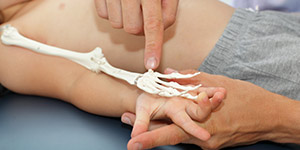
Pediatric Genetics
6701 N. Charles St.
Main Hospital, Suite 2326
Towson, MD 21204
Phone: (443) 849-3131

Hereditary Cancer Genetics
6701 N. Charles St.
Main Hospital, Suite 2326
Towson, MD 21204
Phone: (443) 849-3131
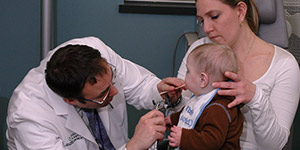
Cleft Lip and Palate
6535 N. Charles St.
Pavilion North, Suite 250
Towson, MD 21204
Phone: (443) 849-6050
